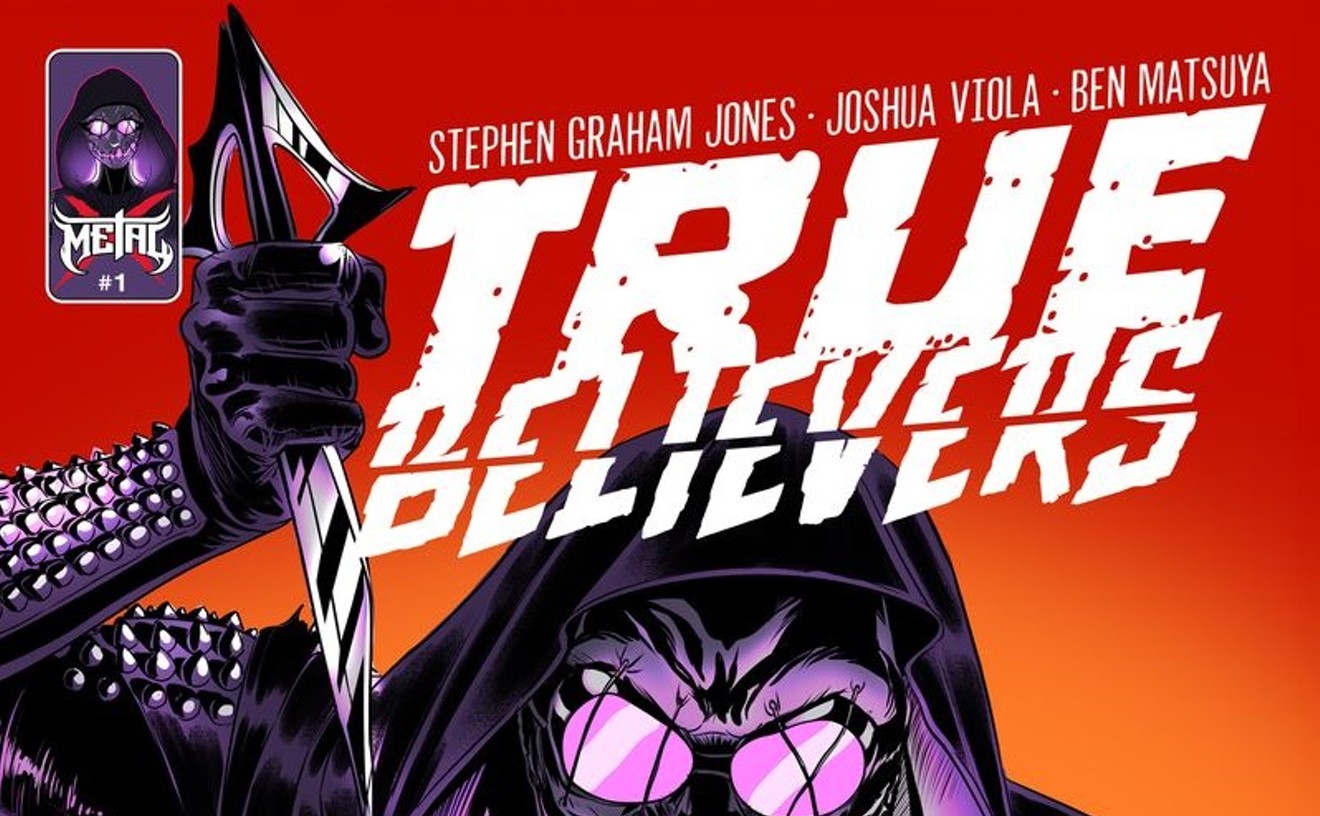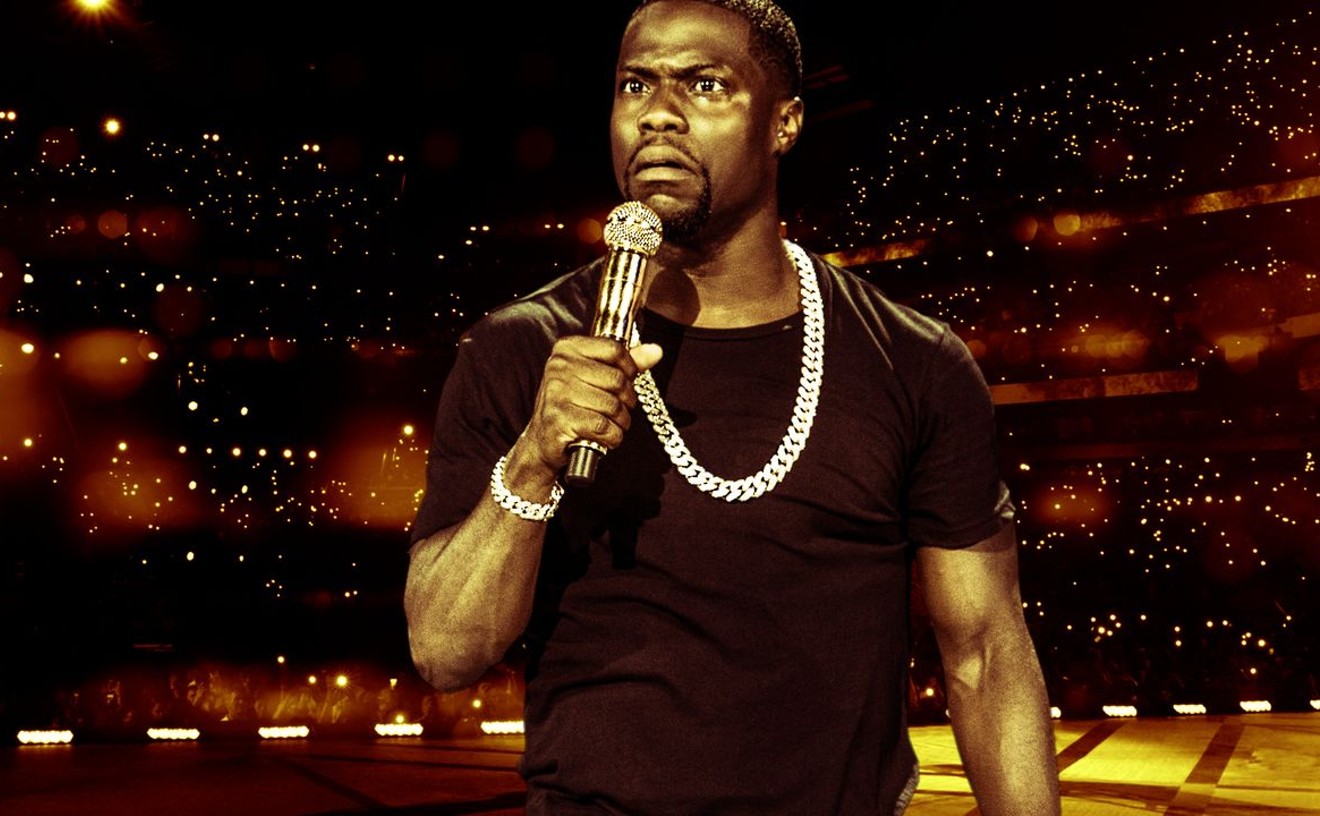Times being what they are, though, Kelley (according to his half-page director's note) decided to perform his research in front of a television set, watching nostalgic sitcoms that are modern-day knockoffs of the sort of slapstick Roman comedy that influenced Shakespeare and the Italian commedia actors. But rather than frame his production in the context of, say, the spontaneous goings-on of a live television show being produced in Fifties America (which would nicely complement the play's improvisational, commedia roots), Kelley's half-baked approach to the Bard's classic battle between the sexes gets derailed somewhere between the effervescence of concept and the slapdash of final cut.
Part of the problem is that Kelley wishes to neutralize any politically correct fallout associated with what some audience members might perceive as Kate's Southern Baptist-style subjugation to her husband, Petruchio. To that end, the director has set the play in Renaissance Italy. Trouble is, Kelley can't help sandwiching a slew of inexplicable, repetitive and anachronistic routines between Shakespeare's brilliantly constructed lines. (Most of these are funny in their own right, but they bear little, if any, relevance to the Bard's play.) For instance, out of nowhere, the actors strike up a tune about the virtues of the Plymouth Volare, even though most of the cast members were still in diapers when the boxy sedan was all the rage--effectively ruling out the possibility that these actors are commenting on their own, present-day reality. They also employ Sein-language ("Yada, yada, yada," says one character) and mimic contemporary movie stars (there's an obligatory Titanic moment that's bound to bewilder more than a few audience members), both of which are jarring in the context of Kelley's wish to set the play in a period far removed from today. In fact, if Kelley wishes us to assume that his production of Shrew is actually a play within a play being performed by a group of contemporary, ad-libbing actors, he would have been well-advised to retain the play's prologue (the oft-cut induction scene) in which such a premise is suggested.
What's worse, the few episodes that Kelley does manage to skillfully interpret--the briskly paced final scene is the production's best--are sometimes undercut by the director's own inept staging. For example, a scene in which Kate shows the first sign that she will capitulate to Petruchio takes place in the middle of the audience, where most opening-night spectators had difficulty seeing the expression on Kate's face during the crucial moment. Moreover, David M. Barber's unwieldy set, which consists of a couple of doorways and a partially enclosed stair unit that serves as a venue for predictable sight gags (and which looks like it's been airlifted out of the cold-storage section of an Olive Garden warehouse), hampers and restricts the movement of actors whose robust physicality is presumably an integral part of Kelley's approach. A diagonal, curved stairway with a wide, multi-level landing facing the audience and a see-through, cascading pattern of stone stiles would have served the production better.
That said, it's evident that Kelley's infectious enthusiasm for the play hasn't been lost on his impressive cast of actors who, bedecked in brightly colored costumes (credit Maureen Carr Stevens), effectively mine the dialogue for laughs at every turn. To Kelley's credit, his handling of the play's leading characters, Kate and Petruchio (Courtney A. Peterson and Hayden Adams), elicits mature, winning portrayals of roles that typically receive apologetic or bombastic renderings. In particular, Peterson imbues Kate with a charismatic feistiness that Adams matches straight away with an offhanded, phlegmatic charm, setting the stage for an enjoyable evening that's thankfully free of the morass of contemporary gender politics. And even though you wish that Kate would deliver a stronger, uncluttered case for the choices she makes near the end of the play, Peterson's handling of her difficult final speech is nonetheless admirable. As Grumio, Steve Cardamone injects the production with its most memorably humorous moments; as his linguistic counterpart, Gremio, Joey Wishnia offers a splendid portrayal of the delightfully dotty lecher. And Tyler Layton crafts an achingly funny portrait of the acerbic widow who forever shackles herself to the the play's unluckiest character, Hortensio, adequately portrayed by Troy Dunn.
As the evening approaches the two-and-a-half-hour mark, however, you find yourself yearning for a quick resolution to Kelley's sophomoric and incongruous approach, which is best summed up by the director himself in his aforementioned program note: "Relax, and don't think too much--it's a comedy." An appropriate motto for theatergoers, perhaps, but as far as Kelley's own efforts are concerned, his cheery admonition reads more like famous last words.
The Taming of the Shrew, presented by the Colorado Shakespeare Festival through August 12 at the Mary Rippon Outdoor Theatre, CU-Boulder campus, 492-0554.










